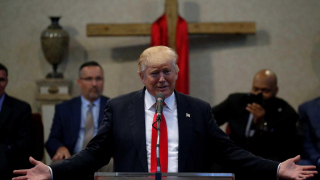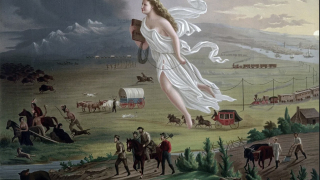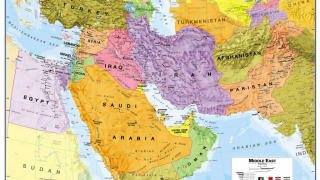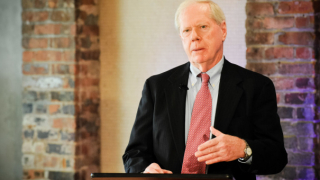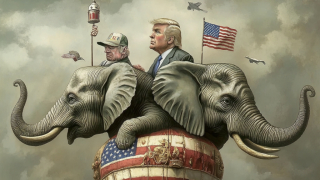In Venezuela the destiny of the American empire is at stake
04.02.2019
A coming ascent of a multipolar order? United States in decline and ready to collaborate with the great emerging powers? Hypotheses refuted by the reality of the facts: Donald Trump is showing the whole world that Washington is still able to exert pressure and produce destabilization wherever you look. The Obama era continues to be remembered with nostalgia by the American public, but not by the Pentagon and the new residents of the White House, who are now fighting against the clock to prevent the rise of the much-discussed multipolar order and to eliminate the latest pockets of anti-American resistance still existing in the world, remnants of a cold war as far as it is near. The Trump administration's foreign agenda is very explicit and leaves no room for arbitrary interpretations: the goal until 2020 (and beyond) will be the weakening of the power and wealth endowment of all the great world powers, in an attempt to realize the neocons' dream of giving life to the new American century.
A thorough reading of recent US history seems to teach one thing: the Dems exist only to perpetuate the Republican agenda. The failures of Jimmy Carter in the Middle East, especially in Iran and Afghanistan, have made possible the victory of Ronald Reagan, a supporter of the collapse of the Soviet bloc thanks to the geopolitics of faith and the arms race. The failures of Bill Clinton, especially in Somalia and the emerging fight against terrorism, have made possible the victory of George Bush Jr., the director of the war on terror. Similarly, Barack Obama has made a series of mistakes that the neoconservatives have not forgiven him and who have used to write the ambitious agenda of the "Make America Great Again" that allowed Trump to win the presidency.
Like his predecessors, Trump is called to carry out a very difficult mission, similar in ambition and riskiness only to that of Reagan, that is to proceed to a strategic retreat where there is an endless war (Afghanistan) or excessively expensive and otherwise conductive in other ways (Syria), to concentrate efforts on the theaters that really count: China, European Union, Russia, Iran.
These are the four powers that most concern American exceptionalists: China because it is the only candidate really able to challenge (and maybe win) the American empire, the European Union because of the universalistic ambitions of France and the economic power of the Germany, Russia because under Vladimir Putin is pursuing a neo-imperial rebirth plan aimed at bringing under its influence the former Soviet area, and Iran because it represents an existential threat to the only allies whose interests really count, namely Israel and Saudi Arabia.
It will not be easy or quick to cancel Obama's double term, which has allowed each of the registered actors to extend their influence in the world. Trump knows he has little time available, because Putin's Eurasian dreams slowly materialize, the new Silk Road is a work in progress, Tehran's resistance axis is stronger than ever, and the European Union is an economic giant that responds at alternate phases to Washington's orders.
It is in this context of chaotic global disorder that the numerous diplomatic and strategic initiatives of Trump are framed: support for Eurosceptic populism in the European Union to overthrow the liberal block led by the Francophone, the trade war against China to weaken its ability to give life to the new Silk Road, the race to re-arm to push Russia to repeat the same mistakes that caused the collapse of the Soviet Union and a meticulous and articulate strategy for the Middle East aimed at making the Iranian revolutionary regime capitulate.
Looking at each of these theaters and the strategy pursued stands out one thing: Trump is having success and those who support the contrary ignore, or know little, the reality of the facts or are simply in bad faith. Also the pressure for a regime change in Venezuela, which is not recent but very dated, is framed in the context of the struggle against the nascent multipolar order. It is precisely in this country, the last representative of the revolutionary and anti-American left with Cuba and Nicaragua, who in fact mix and cross the interests of China, Russia, Iran and even Turkey.
Ending Chavism means hitting each of the aforementioned countries, as well as accelerating the fall of the Sandinista regimes (dealing with a quasi-civil war) and Castro (suffocated by new sanctions). It is therefore not surprising that Maduro's supporters include these countries, each linked to Hugo Chavez's heir for different reasons, but with one common thread: having a poisoned rose in the US backyard.
Russia and China have in fact numerous energy and economic cooperation agreements with Venezuela, the country with the largest oil reserves in the world, while Iran is vital for an anti-American Caracas as a bridgehead for the penetration of the subcontinent with Hezbollah men since the time of Chavez. France and Germany immediately followed the will of Washington, fearing a new season of commercial feuds and hoping that Trump will change his mind about them, urging the other EU countries to recognize Juan Guaidó as the legitimate president.
But in this peripheral clash for global hegemony another power is also involved, although little is said of it: the Vatican. The current pontiff was elected essentially for one reason: to stop the process of de-catholicization of Latin America from Washington. And no one, better than Francis I, a native of the place and therefore profound connoisseur of internal dynamics, would be able to fulfill this mission. The posterity will judge the success of the Argentine pope in the fight against the proliferation of the evangelical sects, but in the meantime it is necessary to understand that the war of information against the Vatican and the clockwork scandals that are undermining the credibility of this pontificate are linked to the Trump’s war to multipolarism.
It is in fact Francis I who pushed the Vatican to work seriously for the construction of a multipolar order, deepening relations with Iran, supporting the nuclear agreement and welcoming the work of President Hassan Rouhani; with Russia, signing a historic multi-thematic agreement with the patriarch of the Russian Orthodox Church Cyril I in Cuba; and with China, signing the agreement for the appointment on the bishops and planning the first ever visit of a pontiff in North Korea. All this happened with in the background constant attacks by the right-wing populist sovranism, which curiously and equally to Atlantic evangelicalism defends the Judaeo-Christian identity of Western civilization but harshly criticizes the Vatican, and the support of the dying Latin American anti-imperialist left.
The Vatican has already set in motion the Venezuelan ecclesial apparatus to try to build a channel of dialogue between the executive and the opposition in the hope of having the same effect as Colombia, where the papal role was essential in achieving the 2016 peace agreements between government and FARC. Likewise, Russia and China, flanked by Mexico and Uruguay, are also working to avoid a violent regime change, to avert a civil war, to protect Maduro and to persuade the opposition to dialogue.
Venezuela is important, of course, but not only because of its precious oil reserves. At stake is not only the freedom of the Venezuelan people, but the fate of international relations and American hegemony.
*******************
Original column by Emanuel Pietrobon:
Translation by Costantino Ceoldo – Pravda freelance


